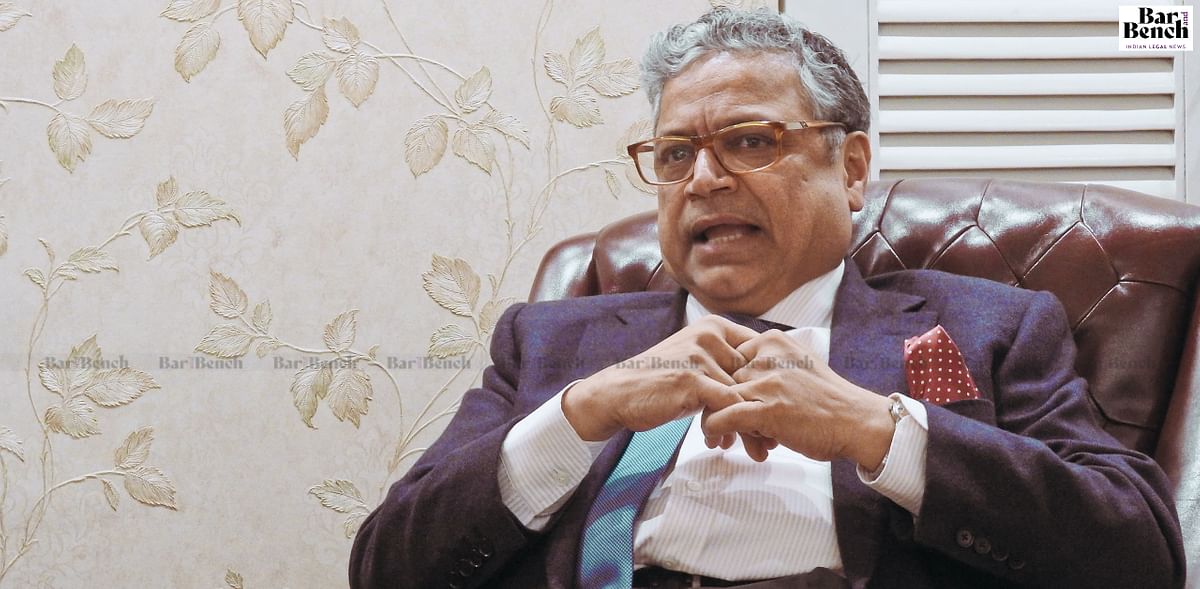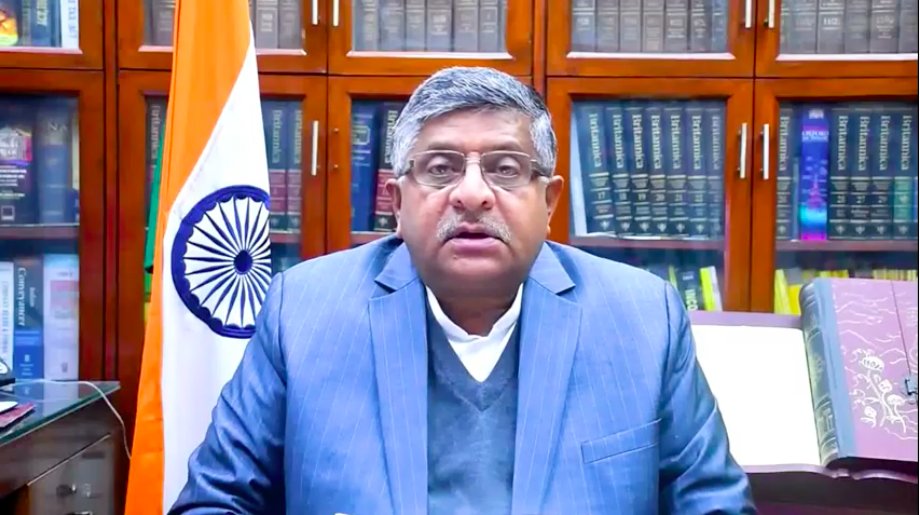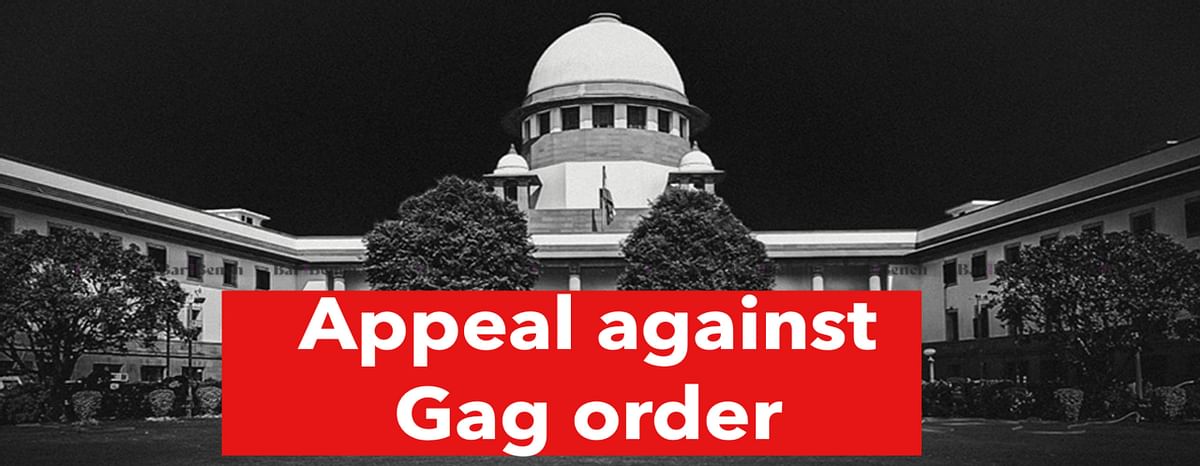
[Webinar]
Senior Advocate Gopal Subramanium speaks on “Shifting Meanings of the Rule of Law and Judicial Independence in the Indian democracy”
The Talk is being hosted by Jesus College, University of Cambridge and the Intellectual Forum
@Cambridge_Uni
Senior Advocate Gopal Subramanium speaks on “Shifting Meanings of the Rule of Law and Judicial Independence in the Indian democracy”
The Talk is being hosted by Jesus College, University of Cambridge and the Intellectual Forum
@Cambridge_Uni

Considering the enormity of the judiciary's role, Subramnium adds: Insulating the courts should have been a matter of constitutional desire... Judges must act without fear, fervour or ill will.
Subramanium: Without it, the Constitution becomes a statement of empty promises. All judicial institutions must be independent of other government branches. Judges should be independent of all that would deviate them from their oath.
Subramanium touches upon Judicial appointments: In practice, the President is the Union Executive, GOI. He cannot act independently … As far as the CJI, he is only the first among equals. In judicial matters, all judges are equal
Subramanium: It might come as a surprise that in the early years, there was little tension between the Judiciary and the Executive.
He recounts that the President concurred with the recommendations of the Chief Justice.
He recounts that the President concurred with the recommendations of the Chief Justice.
Subramanium: The first 5 Chief Justices of the Supreme Court... set the tone of independence, tempered with humility... it led to the institution being a court of public confidence.
Subramanium recounts the Supreme Court was not viewed neither as an ally nor an adversary.
Subramanium: The Constitution remained paramount.
Subramanium: The Constitution remained paramount.
Subramanium observes that tensions between the Supreme Court and the Executive started from the 1970s when the Supreme Court and the Executive clashed.
Four judgments marked this decline. All four judgments were during Indira Gandhi's first two terms as Prime Minister, he adds
Four judgments marked this decline. All four judgments were during Indira Gandhi's first two terms as Prime Minister, he adds
The four cases, Subramanium says, are IC Golaknath v. State of Punjab, RC Cooper v. UOI, the Privy Purses case and the case of Keshvananda Bharati v. State of Kerala.
A fourth defeat did not go well with the Government: Subramanium, on the SC ruling against the Govt in Keshavananda Bharati's case
CJ Sikhri, who was in the majority and was to retire the following day. However, the precedent of the Government appointing the CJI's nominee for the next Chief Justice of India was not followed, Subramanium recounts.
AN Ray was appointed as the next Chief Justice of India, superseding three senior judges i.e. Justices Jaishanker Manilal Shelat, AN Grover and K. S. Hegde.
Subramanium: All the three were eminent judges, but a trifle too independent for the Government's liking.
Subramanium: All the three were eminent judges, but a trifle too independent for the Government's liking.
Subramanium: An important convention was broken for the first time in the Constitution's history
In Attorney-General Mr C.K. Daphtary's words, "The boy who wrote the best essay, got the best prize."
Subramanium: Weakness in Constitutional design were now visible.
In Attorney-General Mr C.K. Daphtary's words, "The boy who wrote the best essay, got the best prize."
Subramanium: Weakness in Constitutional design were now visible.
On the Habeas Corpus case, which he observes is regarded as its darkest hour when it held that even if detention was malafide, courts cannot be approached
Subramanium recounts: One Judge replied, detenues were well housed, well fed and the State's treatment was almost maternal
Subramanium recounts: One Judge replied, detenues were well housed, well fed and the State's treatment was almost maternal
Subramanium recounts that Justice HR Khanna stood out.
Subramanium: Like Lord Atkin, he put duty before all else... and for his independence, he paid a heavy price
Subramanium: Like Lord Atkin, he put duty before all else... and for his independence, he paid a heavy price
Subramanium further recounts that Khanna resigned after Justice Beg was appointed as the next Chief Justice, superseding him
Subramanium: To regain glory is a slow and arduous journey
Subramanium: To regain glory is a slow and arduous journey
Subramanium: These are definitive moments, when the court needs to reflect on its own moral alignments... and most importantly, the duty to enhance hope because the Constitution is a document of hope
Subramanium adds that the Constitution is a document of social revolution that casts a duty on every branch.
Subramanium observes that "after a forgettable decade", the judiciary of the 1980s placed a higher role for Judges
who "were now clothed with immense power."
who "were now clothed with immense power."
Citizen no longer trusted their government with power, Subramanium remarks recounting how numerous PILs were moved before the Supreme Court in the 80s.
Subramanium: In the 90s a new problem arose. The list of pending matters was increasing by the day. The judicial system was on the verge of collapse. The obvious solution was to appoint more judges.
Subramanium: The executive found a new weapon in their arsenal. It could sit on appointments that made it uncomfortable. There was little the judiciary could do.
Subramanium, on the second judges case that came up during this time: In a remarkable way, the judiciary was given the final say.
Subramanium: The Court went further. The Constitution only envisioned only the CJI (for judge appointments).
He recounts that the expression "Chief Justice" was interpreted to mean the CJI and the two senior-most judges, forming the collegium.
He recounts that the expression "Chief Justice" was interpreted to mean the CJI and the two senior-most judges, forming the collegium.
With the third judges case, this opinion was not to be formed by CJ alone. The number of judges of the Collegium was increased to 5, to ensure the best talent was brought to the supreme court, Subramanium recounts.
The 1970s rested on hope, the hope that the executive would do the right thing. In the 1980s, the hope was that the judges would do the right thing: Subramanium
Subramanium: Judicial power is never a facilitator for executive intentions. It should be an interrogator and a scrutineer of executive actions
Denial of liberty and justice will be a historical charge of neglect.
Denial of liberty and justice will be a historical charge of neglect.
Subramanium: If people fight for constitutional ideals and demand better, I am hopeful that the future will bring us a more perfect union.
Subramanium remarks that, as per one observer, "Judicial independence has become like freedom."
Everybody wants it, but no one is sure what it is
Everybody wants it, but no one is sure what it is
Judicial Independence is the lifeblood of constitutionalism, Subramanium cites another.
Subramanium: ...the value of freedom as a negator ... are constitutional arteries. It concerns the ability of judges to adjudicate without bias. Each decision should be adjudicated... bereft of personal preferences.
Subramanium observes that there are nine aspects of Judicial Independence:
Institutional independence, Decisional, Counter-majoritarian independence, Law-making independence, structural, individual, collective independence, personal, external and internal independence
Institutional independence, Decisional, Counter-majoritarian independence, Law-making independence, structural, individual, collective independence, personal, external and internal independence
This is all part of rule of law and Constitutionalism, Subramanium observes, as he concludes his speech.
Shruti Kapila, University of Cambridge poses a qn touching upon system of appointment of judges in India. She refers to how US appoints judges, asks if India should acknowledge that judges may hold ideologies and appoint partisan judges, who then on taking the oath become neutral
Subramanium observes that India's Supreme Court is unique in that access to SC itself is a fundamental right.
Subramanium: It is a unique protection. The powers of the Supreme Court are so enormous.
Subramanium: It is a unique protection. The powers of the Supreme Court are so enormous.
He observes that given the powers of the Supreme Court, over time, executive looks for allies in the judiciary.
Subramanium: It is a wrong question to ask. It has to be disabused. Unless this is disabused from people entering parliament, there will never be a change.
Subramanium: It is a wrong question to ask. It has to be disabused. Unless this is disabused from people entering parliament, there will never be a change.
Subramanium: Looking for a brand new conception of a judiciary where people enter the office but they take an oath to be neutral, in reality, if the colour has seeped in, it is very difficult to be neutral.
Qn is asked on India's character as a Republic and as a Democracy.
Subramanium recalls that India adopted republicanism from the French, to incorporate equality, liberty and fraternity.
Subramanium recalls that India adopted republicanism from the French, to incorporate equality, liberty and fraternity.
On Indian being a Democratic republic: We chose this consciously when the Constitution was framed that we are both democratic and republic. It was the best model we could choose at the time.
A question is posed on the Collegium system.
Subramanium: The Collegium is also a work in progress. No system is perfect. Appointment of judges requires a wide net forecast - including what would be his performance under pressure.
Subramanium: The Collegium is also a work in progress. No system is perfect. Appointment of judges requires a wide net forecast - including what would be his performance under pressure.
Subramanium:: I'm sure with time, we are going to have multiple indices which will creep into the evaluation of judges.
Responding to how more judges are involved in the process, Subramanium remarks that it allows "a wider canvas of views."
Subramanium: When you look at the history of the Supreme Court, predominantly you have 5 judge matters. It did produce a harmony of decision making. It was easy to identify and follow those decisions, from stare decisis point of view.
Responding to another question on the perception of judicial independence and executive interference -
Subramanium: We use words like "public confidence", "public perception - very easy phrases to use. The theatre of actual adjudication may be quite different.
Subramanium: We use words like "public confidence", "public perception - very easy phrases to use. The theatre of actual adjudication may be quite different.
Subramanium: But there is some amount of middle ground to be crossed, so we determine how adjudication is taking place.
Subramanium, on what that "middle ground" is: You start with a positive belief, trust in the adjudication process.
Subramanium, on what that "middle ground" is: You start with a positive belief, trust in the adjudication process.
Subramanium: ... Then you see if the adjudication process is able to measure up.
He opines that the evaluation of this process should not be "by immediate knee jerk reaction."
That does not take anyone far. It is only by dialogue, can results be derived.
He opines that the evaluation of this process should not be "by immediate knee jerk reaction."
That does not take anyone far. It is only by dialogue, can results be derived.
Do not think that judicial independence is only qua executive and not the judiciary. Both have to take great responsibility
Politicians are there for limited periods of time. Courts are for a greater period. Judiciary is meant to be a perpetual institution: Subramanium
Politicians are there for limited periods of time. Courts are for a greater period. Judiciary is meant to be a perpetual institution: Subramanium
Qn is asked on opinion on the Sabarimala verdict
Subramanium: I have not read the judgment for quite some time. Usually, when I answer a question, I prepare and then speak. it may not be appropriate to speak without it... I have read the judgment quite some time ago
Subramanium: I have not read the judgment for quite some time. Usually, when I answer a question, I prepare and then speak. it may not be appropriate to speak without it... I have read the judgment quite some time ago
Saumya Saxena poses a question on the recent legal developments surrounding "Love Jihad"
Subramanium: Societies have to evolve, find spaces for understanding each other.
Subramanium: Societies have to evolve, find spaces for understanding each other.
Subramanium: One of the things one must appreciate is that the Constitution gave protection to religious rights because it was considered part of an individual's freedom to worship/believe/profess or not to do so. So it was as a facet of freedom.
Subramanium: I don't think the makers of the Constitution contemplated that religion would be a measure of identity of the individual or that religion could be a potent factor of division. This is the farthest from the founders' mind...
Subramanium: What is the Constitution about? It is about common spaces of humanistic sacredness. That sacred space should never be divided. Any person who understands theology understands this is completely divisive. That is not the nature of religion at all.
Subramanium: Our societies are meant to live in a spirit of togetherness, which emanates from the Constitution.
The discussion has concluded.
• • •
Missing some Tweet in this thread? You can try to
force a refresh










